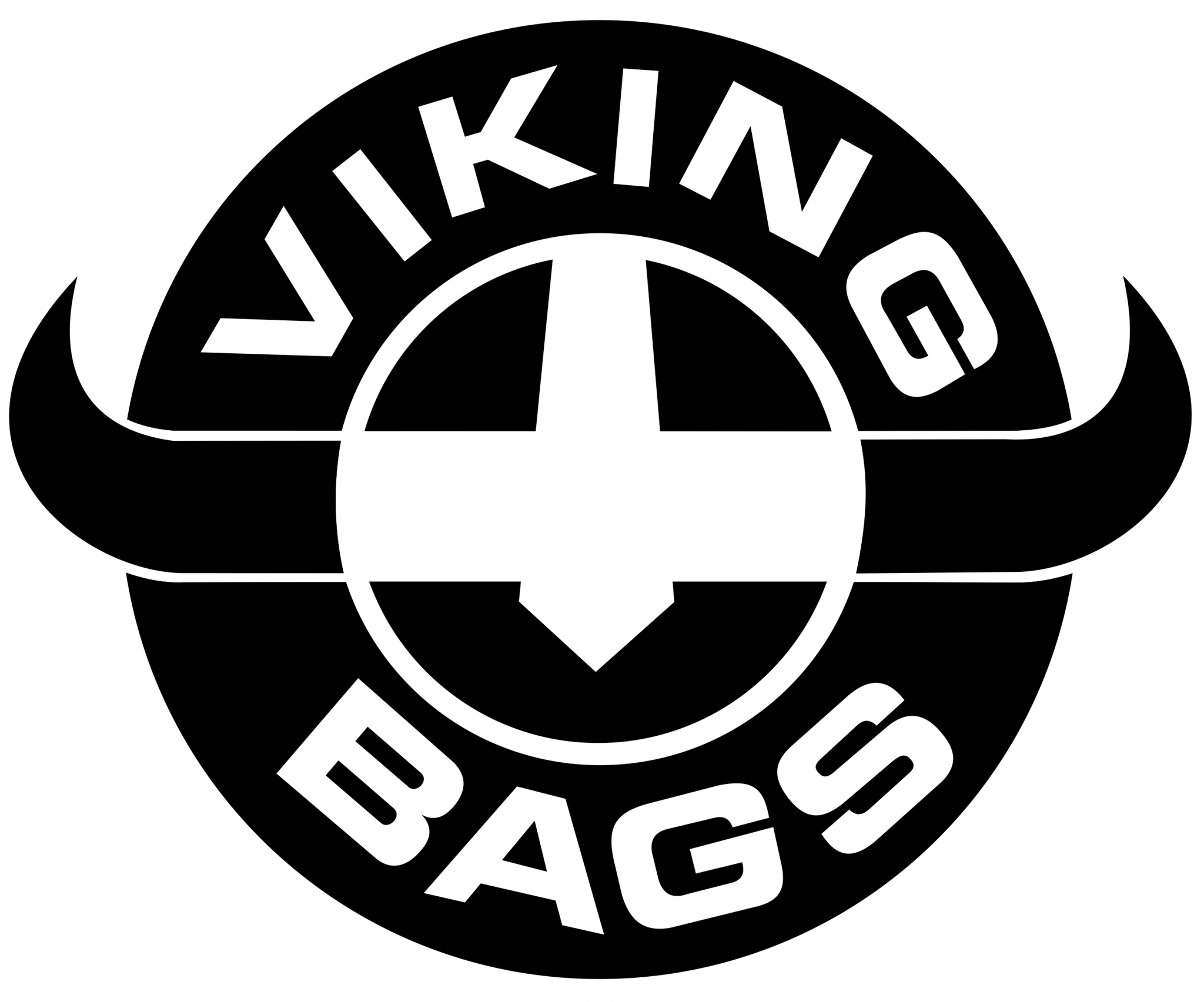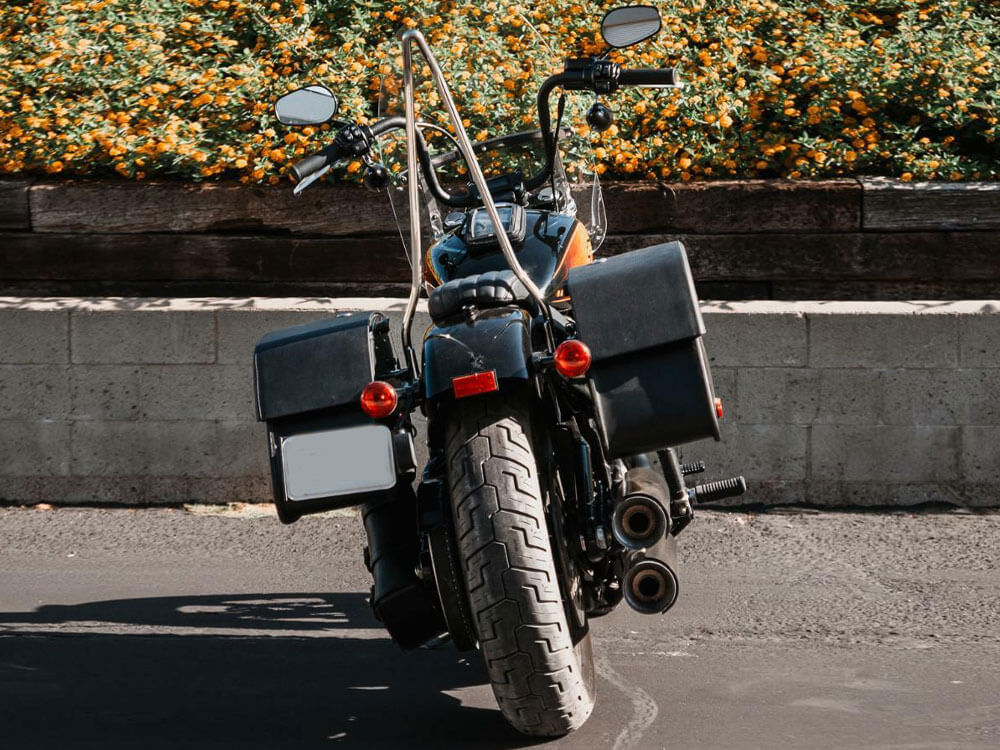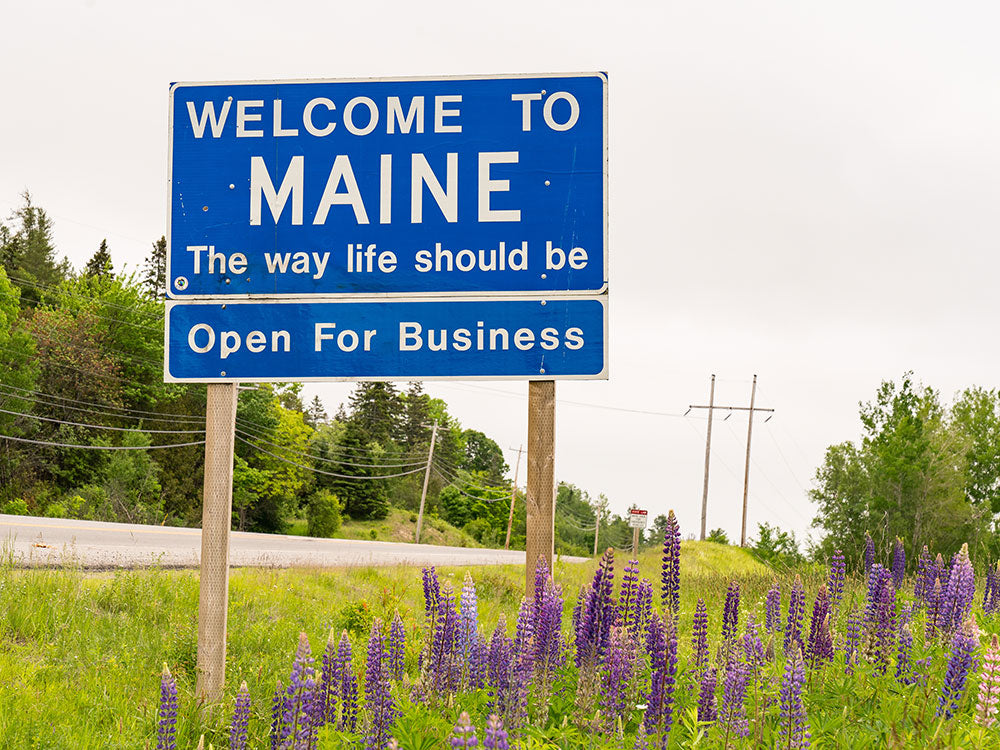Table of Content
1. Introduction
Much like how scary it can be the first time you learn to balance on and ride a bicycle, the same could be said if you have never gotten onto a motorcycle before. However, a motorcycle is more difficult to handle due to having a powerful engine and encountering road hazards. But with enough practice and dedication, you will eventually reach the point where riding a motorcycle will become second nature.
The following information is a general summary of Maine’s motorcycle laws and a detailed description of how to get a Maine motorcycle license.
2. Maine Motorcycle Insurance
Much like how you need health insurance to help cover you when accidents suddenly occur, you require Maine motorcycle insurance just in case you or another driver cause a collision.
Because this type of insurance can be expensive, you can start by purchasing the minimum amounts focused on bodily injury and property damage. However, keep in mind that the costs accrued due to a crash can easily go beyond the minimum requirements of Maine motorcycle insurance.
To give you an idea of the baseline for Maine motorcycle insurance, listed below are the minimum amounts you can start with:
$50,000 for bodily injury to a person per accident
$100,000 for bodily injuries to multiple people per accident
$25,000 for property damages sustained per accident
It is also mandatory in Maine to invest in medical payments and uninsured/underinsured motorist coverage.
Medical payments coverage may be useful in paying for any expenses related to injuries you or your passengers receive following an accident. Your insurance plan must at least meet this requirement:
$2,000 for medical expenses per person
Uninsured/underinsured motorist coverage will help protect you and your passengers if you get into an accident with another driver who does not own insurance or cannot meet the liability limit. This must be able to cover the following minimum costs:
$50,000 for bodily injury to a person per accident
$100,000 for bodily injuries to multiple people per accident
If you have the finances, you can acquire additional insurance coverage that pertains to your health and property. Having insurance coverage that applies to multiple situations that can occur in a crash ensures you receive some or full compensation.
Unlike the types of motorcycle insurance mentioned earlier, these are nonmandatory additions that you can pick at your discretion:
Collision coverage
Comprehensive coverage
Bodily injury coverage
3. Maine Motorcycle Helmet Laws

In Maine, riders who are under the age of 18 must have their heads protected while the motorcycle is in motion. Adults have more agency when it comes to motorcycle helmets as they can decide when and where they must put on a motorcycle helmet.
Both minors and adult motorcyclists should have either a three-quarter or full-face helmet. The three-quarter helmet covers the top and back of your head, leaving an opening revealing your face. The full-face helmet encloses your entire head with an opening for your eyes which can be protected by a flippable visor.
You will know that the motorcycle helmet you choose is reliable if there are stickers from the Snell Memorial Foundation and the U.S. Department of Transportation. The former is a nonprofit organization that specializes in designing helmets for various vehicle types. The latter comes up with the rules of the road and safety regulations for motor vehicles.
| Requirements | Three-Quarter Helmet | Full-Face Helmet |
|---|---|---|
| Has the Department of Transportation (DOT) sticker | ✔️ | ✔️ |
| Contours around your head to fit snugly due to comfort padding | ✔️ | ✔️ |
| No signs of damage (Ex:// cracks, loose padding, scratches, or frayed straps) | ✔️ | ✔️ |
| Has a face shield with no scratches | ❌ | ✔️ |
| Includes separate eye protection with no scratches (Ex:// goggles, glasses) | ✔️ | ❌ |
| Has a hard and durable outer shell that is shatter-resistant | ✔️ | ✔️ |
| Has a impact absorbing liner inside the helmet | ✔️ | ✔️ |
| Gives you a clear, peripheral view of your surroundings | ✔️ | ✔️ |
| Securely fastened with neck- or chin-strap | ✔️ | ✔️ |
| Allows airflow without fogging up | ✔️ | ✔️ |
| Can allow you to wear sunglasses underneath | ✔️ | ✔️ |
4. Maine Motorcycle License Laws
4.1 Maine Motorcycle Learner’s Permit
Upon turning 16 years old, you can begin practicing and preparing to acquire your Maine motorcycle license. If you are a minor, you will first have to acquire a two-year motorcycle learner’s permit which requires you to pay a fee of $35.
Paying the Maine motorcycle learner’s permit is only one of the requirements you must satisfy as there are other tasks you must complete:
-
If you are under 18 years old:
Have signature and consent from a parent or legal guardian
Bring documents verifying identity
Bring proof of Maine residency
Bring proof of U.S. citizenship
Bring your SSN
Take a photo
Pass the knowledge exam
Pass the vision exam
Pay the required fees
As you become familiar operating a motorcycle, there are restrictions you must follow when in possession of a Maine motorcycle learner’s permit:
You cannot carry passengers
You must wear protective motorcycle gear
4.2 Maine Motorcycle License
If you are confident about your motorcycle skills after having done an adequate amount of practice, you can attempt to earn your Maine motorcycle license if you are the age of 16.
Teenagers and adults both must pay a fee of $35 to be issued a six-year motorcycle license. However, there are significantly more criteria that teenagers need to complete before they can operate with an official Maine motorcycle license compared to adults.
| Requirements | Applicants Ages 16 to 17 | Applicants Ages 18 and Above |
|---|---|---|
| Have a valid Delaware driver’s license | ✔️* | ✔️ |
| Held onto a Maine motorcycle learner’s permit for at least six months | ✔️ | ✔️ |
| Complete a Basic Driver Education Course | ✔️ | ❌ |
| Complete a 15-hour Basic Rider Course | ✔️* | ✔️* |
| Provide proof of Maine motorcycle insurance | ✔️ | ✔️ |
| Provide proof of Maine vehicle registration | ✔️ | ✔️ |
| Fill out the appropriate driver’s license application | ✔️ | ✔️ |
| Must have consent of a parent or legal guardian if you are a minor | ✔️ | ❌ |
| Provide your social security number | ✔️ | ✔️ |
| Pay required fees | ✔️ | ✔️ |
| Present valid photo I.D. | ✔️ | ✔️ |
| Take a photo | ✔️ | ✔️ |
| Take vision exam | ✔️ | ✔️ |
| Pass the knowledge test | ✔️ | ✔️ |
| Pass the road skills test | ✔️* | ✔️* |
| Provide proof of U.S. citizenship | ✔️ | ✔️ |
| Provide proof of residency in Maine | ✔️ | ✔️ |
*Any applicants that complete a Basic Rider Course have the option of having the road skills portion of the Maine motorcycle license test waived.
*If you waive the road skills portion of the Maine motorcycle license test, you are not allowed to carry any passengers for 60 days after the license is issued.
4.3 Maine Motorcycle License Test
Written Portion:
Test will be done on touch-screen computers
Complete 25 multiple-choice questions
Questions will be based on the Maine Motorcycle Operator Manual
Will also test your understanding of rules of the road and safe riding habits
Requires a passing grade of 80% or higher
Road Skills Portion:
Test will take place on a controlled, off-street area or an actual traffic environment
Check that your motorcycle is up to code beforehand as it will be inspected before you can take the test
Demonstrate a basic understanding of motorcycle operation
You will be tested on your ability to stay within the speed limit, adjust speed and position, maintain visibility, operate under stress, accelerate, brake, turn, stop, and swerve
The examiner will grade you based on how well you ride at safe speeds, stay within the lanes, and attempt maneuvers
5. Maine Motorcycle Passenger Laws
In Maine, you are allowed to carry one to two passengers as it is the maximum space and weight capacity your motorcycle can handle without affecting its functionality.
Because of the limited space on your motorcycle, you would need to set aside a section at the rear or side to affix a passenger seat. Only if the passenger seat is placed towards the rear do you need to provide handholds and footrests.
To ensure your passenger(s) is comfortable, there must be a gap between the passenger and driver’s seats so his/her legs are not being crushed. This gap also ensures there is clearance so that you are not being crowded when leaning with your motorcycle.
Just as you are responsible for your motorcycle’s condition, so is the well-being of your passenger(s). Before they even climb onto your ride, you should go over a checklist to make sure they will not fly out of the seat and that they will behave while traveling.
If the passenger is a minor, s/he must wear a motorcycle helmet
The passenger’s feet must be planted flat aginst the footrests
Your passenger has to be quick to follow directions
6. Maine Lane Splitting Laws
The recent status of lane splitting in the state of Maine is declared illegal.
Lane splitting involves riding a motorcycle between stopped or slowed vehicles and/or maneuvering atop the borders separating lanes.
Motorcyclists can move freely within the confines of a lane’s boundaries and lane share with another rider if both agree it can be done with minimal risk.
7. Maine Motorcycle Equipment Requirements

Rather than wait for your motorcycle to start breaking down, take the initiative and bring your motorcycle to an inspection station once a year. A close examination will reveal which motorcycle parts are becoming worn down or have stopped functioning
As you look over the checklist of motorcycle parts you need to access or find replacements for, these should be included in your list:
Front Components
Front Brake
Front Wheel
Front Tire
Horn
Handlebars
Throttle & Brake Lever
Headlight
Rearview Mirrors
Rear Components
Rear Brake
Rear Wheel
Rear Tire
Taillight
Brake Light
Turn Signals
Exhaust Pipe
Muffler













Leave a comment
All comments are moderated before being published.
This site is protected by hCaptcha and the hCaptcha Privacy Policy and Terms of Service apply.